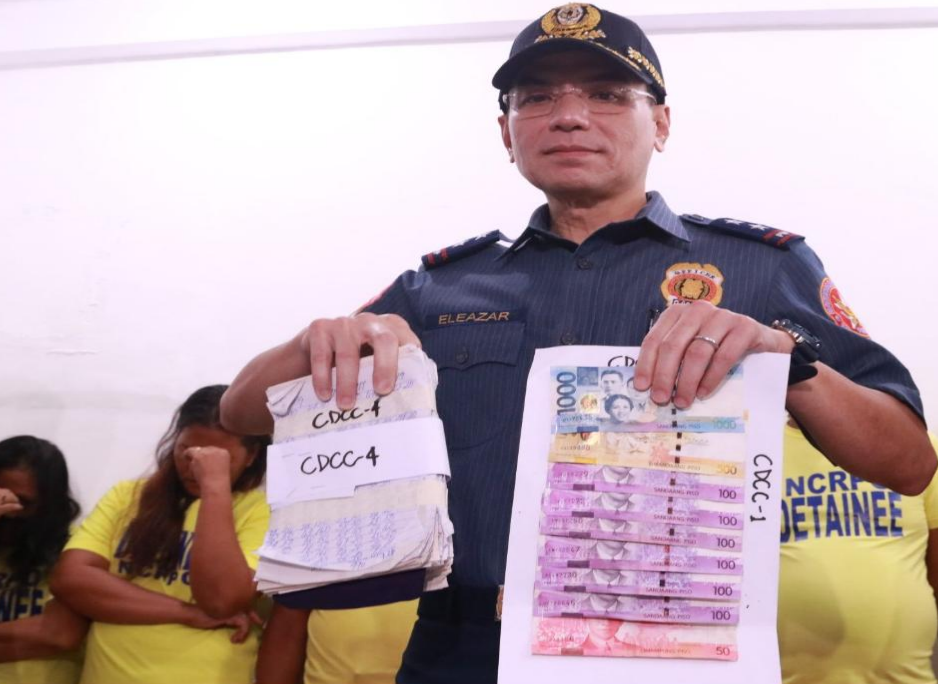In the Philippines, illegal gambling includes traditional numbers games like Jueteng and Masiao, unauthorized online gambling sites, unregulated cockfighting operations, E-sabong (online cockfighting) without proper permits, and slot machines operating outside of authorized venues.

Legal Forms of Gambling
Licensed Casinos and Their Operations
The Philippines boasts a variety of licensed casinos that cater to both locals and international tourists. Major cities, especially Manila, house luxurious resorts and casino complexes like Resorts World Manila and City of Dreams. These establishments offer games such as blackjack, poker, roulette, and slot machines.
Casinos adhere to strict operational guidelines to ensure fairness and integrity. For instance, they must obtain licenses, regularly renew them, and submit to inspections by relevant authorities.
Here’s a link to learn more about the casino industry in the Philippines.
Philippine Charity Sweepstakes Office (PCSO) Games
The PCSO is a government agency responsible for raising funds for health programs, medical assistance, and charities. The PCSO conducts and oversees lottery draws like Lotto, Keno, and the popular Small Town Lottery (STL). Tickets for these games are available at authorized outlets nationwide.
For detailed information on PCSO and its offerings, click here.
PAGCOR (Philippine Amusement and Gaming Corporation) and Its Role
PAGCOR is the official gaming regulator in the Philippines. Beyond its regulatory functions, PAGCOR also operates its own casinos and other gaming establishments. The revenue generated supports nation-building through infrastructure projects and educational programs.
PAGCOR’s official website provides more insights on its operations and contributions.
Online Gambling Regulations and POGOs (Philippine Offshore Gaming Operators)
Online gambling has surged in the Philippines, leading to the establishment of POGOs. POGOs are licensed entities that offer online gaming services to customers outside the Philippines. Their operations, though controversial, are legal and regulated by PAGCOR.

Illegal Gambling Activities
Jueteng and Masiao: The Traditional Illegal Numbers Games
Jueteng and Masiao have deep historical roots in the Filipino gambling scene. Jueteng, for instance, is a form of illegal lottery involving the prediction of two numbers from 1 to 37. It’s prevalent in many provinces and has often been linked to political corruption due to its clandestine nature. Similarly, Masiao is another numbers game, but players bet on three numbers. Both games thrive due to their accessibility and the potential for significant earnings.
Learn more about the history and intricacies of Jueteng here.
Unauthorized Online Gambling Sites
While PAGCOR licenses certain online gambling operations, numerous unauthorized online platforms target Filipino players. These sites often escape taxation and might not offer players the same protection or fair play standards as licensed entities. It’s crucial for players to verify the legitimacy of online platforms before engaging.
For more details on online gambling, check this link.
Illegal Cockfighting Operations
Cockfighting, or Sabong, is a traditional Filipino sport where two roosters fight to the death. While there are legal and regulated venues for these fights, many illegal operations persist. These unauthorized venues often bypass licensing fees, health standards for the roosters, and humane treatment regulations.
Explore the cultural significance and regulations of Sabong here.
E-sabong (Online Cockfighting) Without Proper Permits
As technology advances, even traditional activities like Sabong have found their way online. E-sabong allows viewers to bet on live-streamed cockfights. However, numerous platforms lack the necessary permits, leading to concerns about transparency, fairness, and animal welfare.

Check out the rise and regulation of E-sabong in the Philippines.
Slot Machines Outside Authorized Venues
Slot machines are popular worldwide, and the Philippines is no exception. However, the operation of these machines is strictly regulated. Machines outside of authorized venues, such as those in some bars or unlicensed gaming areas, are illegal. These machines might not adhere to fair play standards and deprive the government of valuable tax revenue.
Reasons for the Prohibition of Certain Gambling Activities
Socio-economic Impact on Communities
The unchecked spread of illegal gambling can have adverse socio-economic consequences on communities. Many families experience financial ruin due to gambling debts, which can lead to increased poverty levels. Additionally, the proliferation of gambling dens can suppress the growth of legitimate businesses. Small communities may become overly dependent on gambling revenues, which are unpredictable and can lead to economic instability.
For a deeper understanding of socio-economic factors, explore this link.
Issues of Crime and Corruption
Illegal gambling establishments often become hotspots for other illicit activities, including loan sharking, money laundering, and even violent crime. The allure of fast cash and weak regulation can also corrupt local law enforcement and politicians, making them turn a blind eye to these activities. Moreover, illegal gambling operations often engage in tax evasion, depriving the government of funds that could be used for public projects.
Read about the global impact of gambling on crime and corruption here.
Concerns over Addiction and Public Health
Unregulated gambling can foster addiction among individuals more quickly than regulated environments. Addicts often prioritize gambling over essential needs, leading to deteriorating mental and physical health. The absence of support systems or mechanisms to encourage responsible gambling in illegal settings exacerbates this problem. In the broader public health context, gambling addiction can lead to increased stress, depression, and other mental health disorders, straining public health resources.
Reasons for the Prohibition of Certain Gambling Activities
Socio-economic Impact on Communities
The unchecked spread of illegal gambling can have adverse socio-economic consequences on communities. Many families experience financial ruin due to gambling debts, which can lead to increased poverty levels. Additionally, the proliferation of gambling dens can suppress the growth of legitimate businesses. Small communities may become overly dependent on gambling revenues, which are unpredictable and can lead to economic instability.
For a deeper understanding of socio-economic factors, explore this link.
Issues of Crime and Corruption
Illegal gambling establishments often become hotspots for other illicit activities, including loan sharking, money laundering, and even violent crime. The allure of fast cash and weak regulation can also corrupt local law enforcement and politicians, making them turn a blind eye to these activities. Moreover, illegal gambling operations often engage in tax evasion, depriving the government of funds that could be used for public projects.
Read about the global impact of gambling on crime and corruption here.
Concerns over Addiction and Public Health
Unregulated gambling can foster addiction among individuals more quickly than regulated environments. Addicts often prioritize gambling over essential needs, leading to deteriorating mental and physical health. The absence of support systems or mechanisms to encourage responsible gambling in illegal settings exacerbates this problem. In the broader public health context, gambling addiction can lead to increased stress, depression, and other mental health disorders, straining public health resources.
Comparison with Other Southeast Asian Countries
Gambling Laws in Neighboring Countries
| Country | Gambling Laws | Notable Differences/Alignments with the Philippines |
|---|---|---|
| Thailand | Almost all forms of gambling are illegal, except the national lottery and horse racing in Bangkok. | Unlike the Philippines, which has regulated casinos, Thailand has a more restrictive approach to gambling, mainly limiting it to the national lottery and horse racing. Details here |
| Malaysia | Primarily Muslim country; gambling is mostly illegal except for lotteries and one licensed casino resort, Genting Highlands. | While the Philippines offers multiple licensed casinos, Malaysia limits its legal gambling activities to the Genting Highlands resort and lotteries. More on Malaysia’s gambling laws |
| Singapore | Limited legal gambling with two licensed casino resorts. Heavy regulations on online gambling. | Singapore’s approach is somewhat similar to the Philippines with its casino resorts. However, Singapore has tighter online gambling regulations. Singapore’s gambling framework explained |
| Indonesia | Predominantly Muslim country; all forms of gambling are prohibited. | Indonesia’s total prohibition contrasts with the Philippines’ regulated gambling industry. Indonesia’s gambling stance detailed here |
| Vietnam | Residents were historically prohibited from casinos, but a recent pilot project allows entry under specific conditions. Some forms of betting are legal. | Vietnam’s changing approach to allow residents in casinos is a notable shift, whereas the Philippines has long allowed its residents to gamble in licensed venues. Vietnam’s gambling evolution found here |
How the Philippines’ Approach Differs or Aligns
The Philippines stands out in Southeast Asia for its regulated and diverse gambling industry. While countries like Indonesia and Malaysia lean towards prohibition due to religious beliefs, the Philippines has embraced gambling as a significant source of state revenue. However, challenges like illegal gambling remain. The nation’s approach aligns more closely with Singapore, which also sees the economic benefits of regulated gambling. Both countries, however, ensure stringent rules to mitigate associated societal risks.

